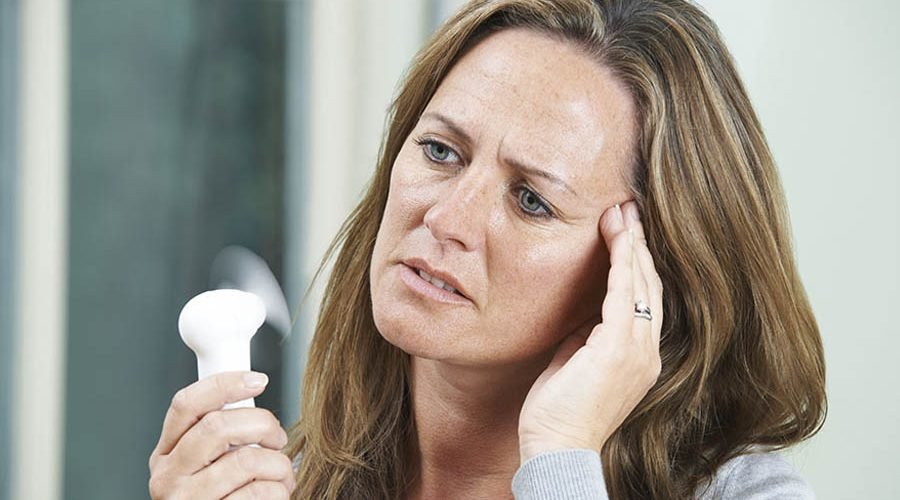Menopause can be a challenging time for many women, as it brings a variety of changes to the body and mind. One of the most common issues women face during this time is memory loss and difficulty concentrating, which can be frustrating and affect their overall quality of life.
However, the good news is that there are several ways to stay sharp during menopause. From regular exercise and a healthy diet to challenging your brain and reducing stress, adopting a holistic approach can help manage memory loss and cognitive decline.
Table of Contents
Traditional Management for Cognitive Decline
Traditional management for cognitive decline is a process that has been around for decades. It involves a series of tests and evaluations to determine the cause of the memory loss and a prescription of medications that can help improve cognitive function.
Managing cognitive decline can be a complex, multi-faceted process. It’s important to remember that you don’t have to deal with it alone. One of the most important lifestyle changes is:
Regular Exercise
It’s been shown to help keep your brain sharp, slow the cognitive decline associated with aging and Alzheimer’s disease, and improve your life.
Eat a Healthy Food
Eating a healthy diet rich in fruits and vegetables and some fish will help you stay fit.
Active Social Life
Maintain a healthy social life, and do mentally stimulating things, like reading books and playing games.
Behavioral Therapy
Behavioral Therapy can help you learn how to deal with your symptoms and improve your quality of life by teaching you new skills and strategies for coping with them. It may include exercises that help you stay active and engaged in life, like exercising regularly or participating in social activities or hobbies.
Social Support
Social support is a key component of managing cognitive decline. It’s one of the most important factors in maintaining a good quality of life for people with dementia.
Family members and friends can provide social support, but sometimes that’s not enough. If you’re looking for more ways to help your loved one, consider joining a support group or finding other resources to provide the social connection they need.
Physical Therapy
Physical therapy can help improve your strength, coordination, balance, and ability to perform everyday tasks such as bathing or dressing without assistance from others (if needed).
Medications
Medications can be used to treat a variety of symptoms, including anxiety, depression, and insomnia.
Some doctors prescribe drugs like cholinesterase inhibitors and memantine to help improve symptoms. But these drugs might not work for everyone and can have side effects.
Before starting any treatment plan, you must talk to a healthcare professional. As well you should consider other factors, such as managing stress, getting enough sleep, and avoiding smoking and excessive alcohol consumption: all of which can contribute to cognitive decline.
Adopting a holistic approach to managing cognitive decline will improve your cognitive function and quality of life.
How to Stay Sharp During Menopause
Menopause can bring on a bevy of changes, including memory loss and difficulty concentrating. But there are several ways to stay sharp during menopause:
Exercise Regularly
Physical activity can help improve cognitive function and memory and reduce the risk of developing conditions such as Alzheimer’s disease.
Eat a Healthy Diet
It’s important to prioritize healthy eating habits. A balanced diet plays a significant role in supporting mental clarity and overall wellness. Ensure you get enough omega-3 fatty acids and Vitamin E in your diet. Adding a natural supplement and the menopause supplements available in the UK to your routine can also help support a healthy lifestyle.
Get Enough Sleep
Getting enough sleep is one of the best ways to stay sharp during menopause. Your body needs time to recover from the day, and if you’re not giving it that time, you’ll be more likely to feel tired, irritable, and forgetful.
Sleep also helps with memory retention–so if you’re having trouble remembering things like where you put your keys or how many tablespoons are in a cup of sugar, try getting an extra hour or two of shut-eye every night!
Challenge Your Brain
Do puzzles, play games, or learn a new skill. These activities can improve your memory, stimulate your brain, and help keep you sharp as you age.
Reduce Stress
When stressed, your mind might not function well or remember as easily. Try meditation or yoga to cut stress from your life—they’ll help you unplug so you can focus on what’s important.
Consult a Healthcare Provider
If you’re experiencing memory loss or cognitive decline, consult a healthcare provider to rule out any underlying medical conditions.
If your doctor recommends it, and if it’s right for you, HRT can help preserve your cognitive health during this time of transition.
Takeaway
In conclusion, memory loss and cognitive decline can be a challenging aspect of menopause symptoms, but there are several strategies you can adopt to maintain your cognitive vitality. Regular exercise, healthy eating, getting enough sleep, challenging your brain, reducing stress, and consulting a healthcare provider are all essential components of a holistic approach to managing memory loss. Additionally, natural supplements such as Nutrivive can provide support for a healthy lifestyle during menopause. .
By incorporating these tips and strategies into your daily routine, and adding Nutrivive supplements, you can stay sharp and maintain your cognitive health during this time of transition. Remember, a healthy body and mind go hand in hand, so taking care of your overall wellness is key to maintaining cognitive vitality. Visit Nutrivive.co to learn more about their range of menopause supplements and how they can support your cognitive health during menopause.





